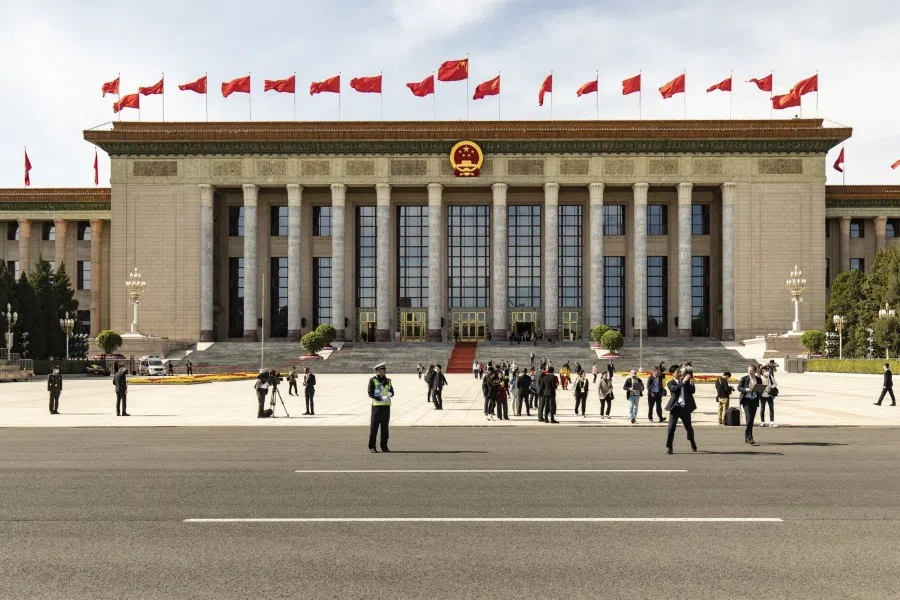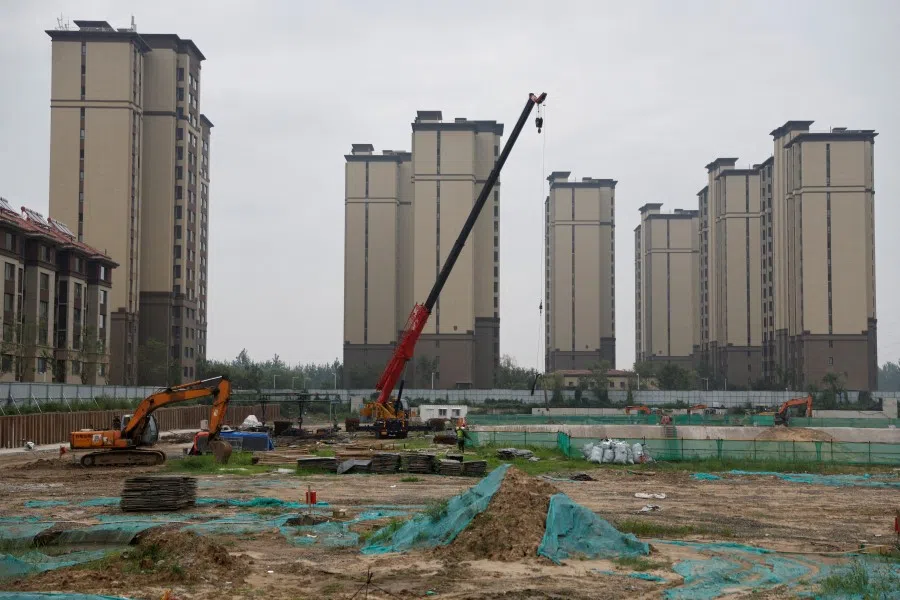Third quarter figures up: Does China's economy still need strong medicine?
Zaobao correspondent Chen Jing notes that despite the high likelihood of China's economy meeting its growth target this year, there is still a chance that the government might take strong measures to stimulate the economy further. However, given that it is late in the year, would any measures implemented achieve their intended effect and which sectors should they be targeted at?

"Our preliminary calculations indicate that to achieve the annual target, a growth rate of 4.4% or more in the fourth quarter is sufficient... From this perspective, we are very confident in achieving the annual target."
Following the release of China's third-quarter economic growth data on 18 October, Sheng Laiyun, deputy head of the National Bureau of Statistics (NBS), appeared much more relaxed when answering questions from the media about whether the annual economic growth could be met.
Despite mixed economic indicators in the past month, the year-on-year growth rate of 4.9% in the third quarter not only exceeded market expectations, but also dispelled concerns about whether China's economy could achieve its target of around 5% growth in the near term. Due to the impact of pandemic-related lockdowns, China's economy grew by just 2.9% in the fourth quarter of last year. Barring any mishaps, the year-on-year growth rate in the fourth quarter of this year is expected to be above 6%.
New stimulus package?
The question now is whether the policymakers will launch a new round of economic stimulus measures as rumoured, by issuing large sovereign bonds and raising the fiscal deficit rate.
Last week, Bloomberg cited sources saying that Beijing is considering the issuance of at least 1 trillion RMB (US$137 billion) of additional sovereign debt for spending on infrastructure projects such as water conservancy. This could push the budget deficit rate for this year significantly beyond the 3% limit announced at the National People's Congress in March.

The report quoted informed sources saying that the plan is still awaiting approval from the State Council and the National People's Congress (NPC) and is currently under discussion. Since the (NPC) Standing Committee is expected to hold a meeting at the end of this month, any announcement may be made this month at the earliest.
Procedurally, issuing more government bonds and adjusting the central budget requires the Ministry of Finance (MOF) to submit proposals to the NPC's Financial and Economic Affairs Committee, which will provide initial reviews and opinions. The NPC Standing Committee will then review the MOF's proposals during its session and decide whether or not to approve them, taking into account the financial committee's opinions.
... infrastructure projects typically slow down in the autumn and winter, so the effects of any stimulus measures will probably only be seen next year.
Timing a factor
While this process is not too complex, it is very rare for the Chinese government to adjust the central budget in the middle of the year. Statistics show that over the past 30 years, this has only happened four times: once for reconstruction following the 2008 Sichuan earthquake, and the other three in 1998, 1999 and 2000, to stimulate the economy around the time of the Asian financial crisis. All the budget adjustments were made at the end of August.
In speaking to economists about the possibility of adjusting the budget, the first question was the issue of timing. Given that this is already the final quarter of the year, even if the NPC Standing Committee approves the proposals at the end of this month, that leaves only two months to implement the plan. Besides, infrastructure projects typically slow down in the autumn and winter, so the effects of any stimulus measures will probably only be seen next year. Rather than adjusting this year's budget, it might be more practical to focus on next year's fiscal budget.

Second, given the high likelihood of achieving this year's economic growth target, is there still a need to resort to unconventional measures now? The 1 trillion RMB special government bonds issued three years ago were in response to the sudden outbreak of the Covid-19 pandemic. Is the current economic situation as urgent as it was then?
... calls for the central government to take on the main responsibility for issuing debt and lightening the burden on local governments have resurfaced.
Real estate market remains a focus
If there is still a need to increase the deficit rate now, it is most likely to address the real estate market, which remains unstable, and unresolved local debt risks.
The latest data released on 18 October shows that, while data on industrial output, consumption, and other indicators have exceeded expectations, only the real estate market continues to deteriorate. Real estate development investment for the first three quarters of this year has cumulatively declined by 9.1%, and this lower-than-expected performance has dragged down overall fixed asset investment growth.

On the other hand, persistently high local debt is also hindering economic recovery. Many private enterprises are facing operational difficulties due to unpaid debts from local government financing platforms, which has also hit their confidence. This month, even as local governments have intensively issued special refinancing bonds, calls for the central government to take on the main responsibility for issuing debt and lightening the burden on local governments have resurfaced.
Consumer and stock market confidence slow to rebound
Apart from the real estate market and local debt, another major risk facing the economy is the disconnect between macro data and micro perceptions, as well as between policy and the market. Despite improving economic indicators, the public remains less confident about the future, and the stock market has yet to show any significant improvement despite frequent favourable policies.
... it is becoming increasingly challenging to boost investor confidence as policy expectations repeatedly fall short.
The better-than-expected GDP growth in the third quarter did not lead to a rebound in the stock market on 18 October. The CSI 300 Index of Shanghai- and Shenzhen-listed stocks has fallen to its lowest level this year, and the upward trend of the Hang Seng Index was not sustained until the close of trading. In contrast, the day after the news of the government's possible issuance of large sovereign bonds, the stock markets in mainland China and Hong Kong both went up.

This year, the market has been waiting for the government to spend some real money, while the government has been cautious to avoid repeating the mistakes of the "flooding" approach used in 2008. But looking at the continuous decline in the stock market since August, it is becoming increasingly challenging to boost investor confidence as policy expectations repeatedly fall short.
Last week, the International Monetary Fund (IMF) lowered its economic growth expectations for China for this year and next year, warning that a possible crisis in China's real estate market could worsen next year. If consumer confidence and investment in the world's second-largest economy decline too quickly, it will pose significant risks to the global economy.
While it is certain that China will achieve its economic growth target this year, unresolved crises may lead to potential problems for next year and beyond. This explains why the authorities may still make some "big moves" in the remaining two months of the year. However, policymakers must also consider what signals taking drastic measures in the last quarter of the year would send to the market.
Chinese officials have reiterated that there is still plenty of ammunition in the policy toolkit. But for strong medicine to work, dosage and timing are equally important. In the last two months of this year, will the market get a shot in the arm that addresses the symptoms?
This article was first published in Lianhe Zaobao as "中国经济还得下猛药?".



![[Big read] When the Arctic opens, what happens to Singapore?](https://cassette.sphdigital.com.sg/image/thinkchina/da65edebca34645c711c55e83e9877109b3c53847ebb1305573974651df1d13a)
![[Video] George Yeo: America’s deep pain — and why China won’t colonise](https://cassette.sphdigital.com.sg/image/thinkchina/15083e45d96c12390bdea6af2daf19fd9fcd875aa44a0f92796f34e3dad561cc)
